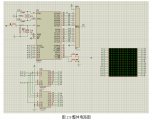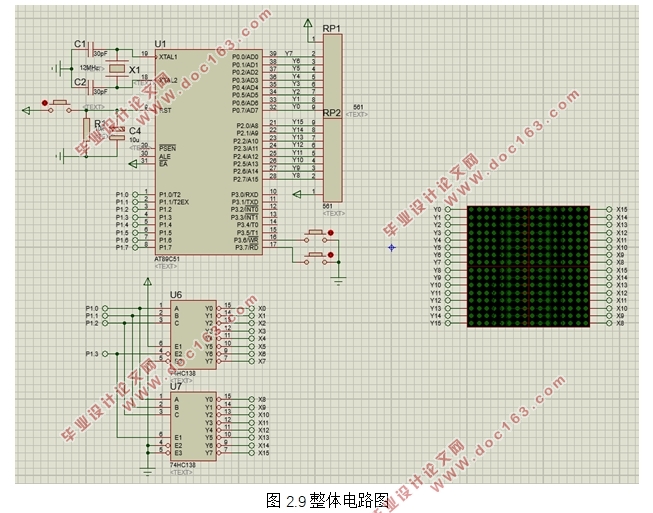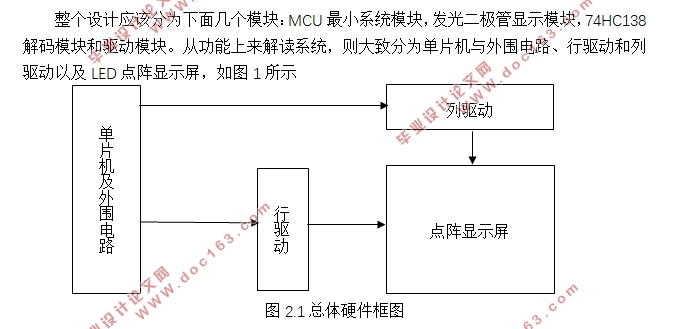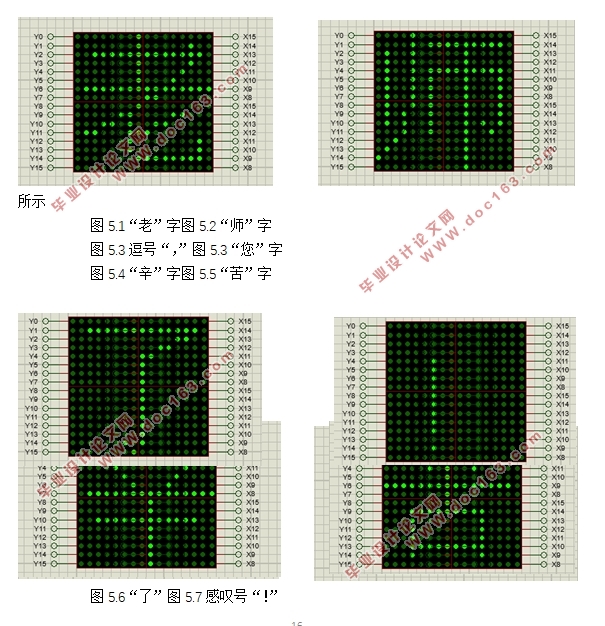基于单片机16*16点阵广告牌的设计

基于单片机16*16点阵广告牌的设计(任务书,开题报告,外文翻译,论文10000字)
摘要
本文设计内容的背景是当前信息传播的媒体越来越依赖显示设备,而作为户外显示设备的主力军——广告牌,被重点关注。因此改善广告牌的设计思路显得愈发重要。其中一种思路便是以单片机为核心,结合外围电路和点阵显示屏所构成的滚动显示系统。LED显示屏具有亮度高、寿命长、通透性好、密度高、便于修改和通透性好等优点,是众多场所用于显示媒体的绝佳选择。众多优点使得LED显示屏相对于传统霓虹灯有了更好的发展前景,从而得到大力支持而发展。本次设计主要对比了LED的两种显示方法:静态扫描显示和动态扫描显示,以及为何选择动态扫描方法来控制LED点阵屏显示滚动相应内容,并对如何控制和传输点阵屏的行列信号进行了研究,根据LED的显示原理,采用了74HC138译码器组成外围驱动电路来实现动态扫描,达到了理想的滚动显示,并且在此基础之上添加了简单的复位、暂停和变向等基础功能。最后经过Proteus的仿真和调试,成功设计出实物并且功能完善。
关键词:单片机;LED点阵屏;显示
Abstract
The background of the design content of this paper is that the media of current information dissemination is increasingly dependent on display devices, and as the main force of outdoor display devices - billboards, it is the focus of attention. Therefore, improving the design of billboards is becoming more and more important. One of the ideas is to use a single-chip microcomputer as the core, combined with the peripheral circuit and the dot matrix display to form a scrolling display system. LED display has the advantages of high brightness, long life, good permeability, high density, easy modification and good permeability. It is an excellent choice for many places to display media. Many advantages make the LED display have better development prospects than traditional neon lights, and thus have been strongly supported and developed. This design mainly compares two display methods of LED: static scan display and dynamic scan display, and why the dynamic scan method is selected to control the LED dot matrix screen to display the corresponding content, and how to control and transmit the matrix signal of the dot matrix screen. According to the display principle of LED, the 74HC138 decoder is used to form the peripheral drive circuit to realize dynamic scanning, which achieves the ideal scroll display, and adds simple reset, pause and change directions. Features. Finally, through the simulation and debugging of Proteus, the design was successfully designed and fully functional.
Keywords:SCM; LED lattice screen;display
[资料来源:http://www.doc163.com]




目录
第1章绪论 1
1.1单片机的发展 1
1.2单片机的应用 1
[来源:http://www.doc163.com]
1.3设计任务与目的 2
1.4方案论证 2
1.5论文研究内容 3
第2章系统硬件设计 4
2.1总体结构 4
2.2单片机最小系统 4
2.2.1电源 4
2.2.2晶振 5
2.2.3复位电路 5
2.2.4数据储存器 5
2.3译码模块 6
2.4显示模块 7
2.5驱动模块 9
2.5.1列驱动 9
2.5.2行驱动 10
2.6 整体电路图 11
第3章系统软件设计 12
3.1显示子程序 12
3.2移动子程序 13
3.3主程序 13
3.4定时器和中断 14
第4章系统调试 16
4.1软件调试 16
4.2硬件调试 17
第5章结论 22
[资料来源:https://www.doc163.com]
参考文献 23
致谢 24
附录 25
